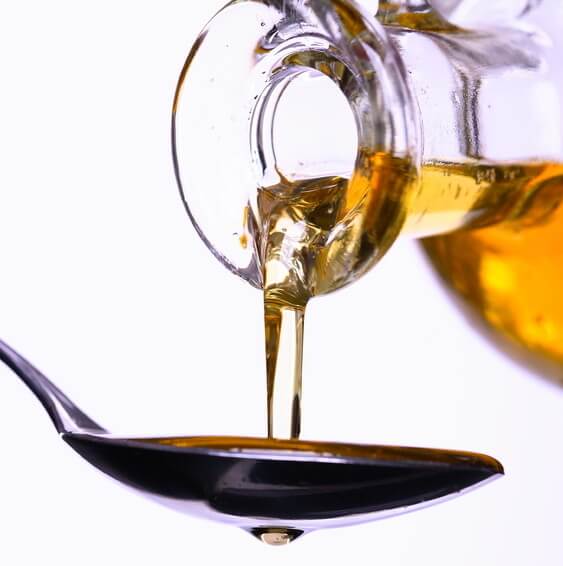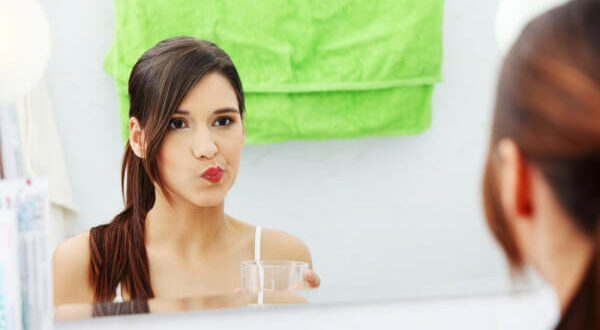A lot of patients have been asking us about oil pulling. At our practice, we are open to new approaches and we evaluate all new techniques and materials with a thorough analysis of the peer-reviewed scientific research combined with our experience and common sense. In the following article, we will review what oil pulling is, what the research says about it, and give you our conclusions.
What is Oil Pulling?
Oil pulling or oil swishing has been used in the Indian subcontinent and alternative medicine for over 5,000 years to reportedly improve oral and systemic diseases such as headaches, diabetes, asthma, gum disease, and even help to whiten teeth.
Oil pulling involves swishing one tablespoon of oil (sesame oil, coconut oil, or sunflower oil) in your mouth, between teeth for 20 MINUTES until you spit it out. The key is a full TWENTY MINUTES.


The Research on Oil Pulling
Dr. Nejad and Dr. Stanley have reviewed five clinical studies that have been conducted on the measurable effects of oil pulling. Here is what they found:
- According to two of the studies oil pulling therapy was equally as effective as chlorhexidine against bad breath (halitosis) and organisms which are associated with bad breath. Chlorhexidine is a prescription mouth rinse used in dentistry that is rinsed for only ONE MINUTE).
- Another study showed reduction in S. mutans (bacteria that causes gum disease and cavities) in both the oil pulling and chlorhexidine groups. However, there was significantly more reduction in S. mutans counts for the chlorhexidine group than in the oil pulling group. Although oil pulling helped reduce the S. mutans bacteria, it didn’t do it as well as a common prescription dental mouth rinse (Chlorhexidine).
- The exact mechanism of the action of oil pulling therapy is not clear. It is claimed that the swishing activates the enzymes and draws the toxins out of the blood. Studies showed that oil pulling cannot pull toxins out of the blood as claimed because the oral mucosa does not act as a semi-permeable membrane to allow toxins to pass through.
- A big risk that was identified in the research was an article the showed how oil pulling was causing recurrent lipoid pneumonia. Lipoid pneumonia is a chemical lung disease caused by inhaling small amounts of oil. Since oil pulling calls for long periods of time with swishing oil, the risk of lipoid pneumonia is a serious complication.
What can we conclude about Oil Pulling and Dental Health?
Oil pulling can help with bad breath and gum disease but not as well as a prescription mouth rinse given to you by your dentist. Since it takes 20 minutes a day to perform properly, it may be impractical as part of your daily routine. Also, the serious potential complication of lipoid pneumonia raises serious concern.
In most cases, oral health can be achieved with proper home care (brushing and flossing) and regular cleanings. In some situations, Chlorhexidine or other mouth rinses may be required. Considering the effectiveness as well as the time commitment of the oil pulling technique, it is our conclusion that this technique is unnecessary in order to achieve the desired result of healthy teeth and gums.
Additional Oil-Pulling Resources:
- Should you try oil pulling? – WebMD
- The Practice of Oil Pulling – American Dental Association
Oil-Pulling Literature References
- Asokan S, Kumar R S, Emmadi P, Raghuraman R, Sivakumar N. Effect of oil pulling on halitosis and microorganisms causing halitosis: A randomized controlled pilot trial. J Indian Soc Pedod Prev Dent 2011;29:90-4
- Singh A, Purohit B. Tooth brushing, oil pulling and tissue regeneration: A review of holistic approaches to oral health. J Ayurveda Integr Med 2011;2:64-8
- Asokan S, Emmadi P, Chamundeswari R. Effect of oil pulling on plaque induced gingivitis: A randomized, controlled, triple-blind study. Indian J Dent Res 2009;20:47-51
- Asokan S, Rathan J, Muthu M S, Rathna PV, Emmadi P, Raghuraman, Chamundeswari. Effect of oil pulling on Streptococcus mutans count in plaque and saliva using Dentocult SM Strip mutans test: A randomized, controlled, triple-blind study. J Indian Soc Pedod Prev Dent 2008;26:12-7
- Kim, Jae Yeol; Jung, Jae Woo; Choi, Jae Chol; Shin, Jong Wook; Park, In Won; Choi, Byoung Whui. Recurrent lipoid pneumonia associated with oil pulling [Correspondence] The International Journal of Tuberculosis and Lung Disease, Volume 18, Number 2, 1 February 2014 , pp. 251-252(2)

Wonder why it was not mentioned that chlorhexidine mouth rinse causes your teeth to become yellow which the dentists will, then recommend to get whitened!
HMmmmm!!
I can see why people might want to use the oil. it is much less expensive than paying for a dental visit and buying prescription mouthwashes. It is a shame that medical healthcare does not cover dentistry, as it is a very important part keeping ourselves healthy
Oil pulling is a more natural route for treating halitosis and other oral issues and is a great method to try for those who wish to forego the pharmaceutical route.